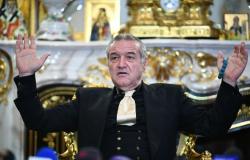More than two weeks before terrorists carried out a bloody attack in suburban Moscow, the US government tipped off Russian officials that Crocus City Hall, a popular concert venue, was a possible target, according to US officials familiar with the situation.
The high degree of specificity conveyed in the warning underscores Washington’s confidence that Islamic State was preparing an attack that threatened large numbers of civilians and directly contradicts Moscow’s claims that American warnings were too general to help prevent the assault, writes The Washington Post.
Why Russia Didn’t Take Action Despite US Warnings
The US’s identification of the Crocus concert hall as a possible target – a fact that was not previously reported – raises new questions about why Russian authorities did not take stronger measures to protect the venue, where more than 140 people were killed by the attackers and the building was set on fire.
An Islamic State affiliate claimed responsibility for the attack, the deadliest in Russia in 20 years. US officials have said publicly that the group, known as the Islamic State-Khorasan, or ISIS-K, “bears full responsibility”, but Russian President Vladimir Putin has tried to blame Ukraine.
The attack further damaged the image of strength and security the Russian leader tries to project and exposed fundamental weaknesses in the nation’s security apparatus, which has been consumed by more than two years of war in Ukraine.
Domestically, Putin’s operatives appear more concerned with silencing political opposition and opposition to the president than rooting out terrorist plots, according to analysts and observers of Russian politics.
The Russian leader himself publicly rejected the US warnings just three days before the March 22 attack, calling them “open blackmail” and attempts to “intimidate and destabilize our society”.
A spokesman for the National Security Council declined to comment for this story. Earlier, the CNS admitted that the United States had passed on information “about a planned terrorist attack in Moscow”, but did not say that Crocus City Hall was named as a possible target, the publication also writes.
Terrorist attack in Moscow Photo source: X (Twitter)
The Americans would have passed on the exact location to the Russians
A Kremlin spokesman did not respond to questions from The Washington Post about the Crocus City Hall warning. But on Tuesday, Sergei Naryshkin, the head of Russia’s foreign intelligence service, told reporters in Moscow that the information the US had shared was “too general and did not allow us to fully identify those who committed this crime terrible,” according to the state-controlled Interfax news agency.
Naryshkin said that following information from US intelligence, Russia “took appropriate measures to prevent” an attack. But images from the scene of the massacre show the attackers met no significant resistance.
Russian media reported that specialized police units did not arrive until more than an hour after the shooting began and waited more than 30 minutes before entering the building, by which time the attackers had already escaped.
While Washington routinely shares information about possible terrorist attacks with foreign countries under a policy known as the “duty to warn,” it is unusual for it to provide information about specific targets to an adversary, officials and experts said.
This carries the risk of revealing how the United States obtained the information, potentially jeopardizing clandestine surveillance activities or human sources.
But the information that indicated an attack on the concert hall also indicated a potential danger for Americans in Russia.
On March 7, the US Embassy publicly announced that it was “monitoring reports that extremists have imminent plans to target large gatherings in Moscow, including concerts”, and advised US citizens to “avoid large gatherings for the next 48 hours”.
Vladimir Putin. Photo source: Kremlin.ru
The US has also shared such information with Iran
The United States shared its information with Russia the day before that public warning, according to people familiar with the matter. Naryshkin said “American intelligence agencies” provided information to the FSB, Russia’s security service.
In line with the whistleblower policy, the US recently shared information about terrorism with another adversary – Iran.
In January, U.S. officials warned that Islamic State planned to carry out attacks in the country, according to U.S. officials, who said the information was specific enough that it could have helped Iranian authorities prevent two suicide bombings that killed at least 95 people. in the city of Kerman.
Although there was no effective security at Crocus City Hall, there are indications that the Russian government, at least initially, took Washington’s warning — which included information about Islamic State plans to attack a synagogue, according to a U.S. official — to heart.
Immediately after Moscow received that information, the FSB announced that it had prevented an Islamic State attack on a synagogue in Moscow.
Islam Khalilov, 15, who said he was working in the concert hall’s wardrobe on the night of the attack, said Crocus staff were informed of the possibility of a terrorist attack not long after the March 7 public warning.
“We were warned that there could be terrorist attacks and we were told what to do and where to take people,” Khalilov said in an interview with Dmitry Yegorov, a well-known Russian sports journalist, that was posted on YouTube. Khalilov said there were tighter security checks at the location, including with trained dogs, the publication added.
Why hasn’t Russia increased security measures though
Why security was not increased and maintained after the initial warning remains unclear. It is possible that Russian security services, seeing no attack materialize in the days immediately following March 7, assumed that the information provided by the US was incorrect and lowered their vigilance, some US officials speculated.
Putin publicly ridiculed terror warnings from what he deemed “a number of Western official structures” during a meeting with senior FSB officials on March 19.
“You are well aware of them, so I will not go into details at this time,” Putin said, according to an official Kremlin transcript.
Putin emphasized that the FSB’s most important job was in Ukraine, as part of what he called Russia’s “special military operation.” Putin has equated Ukrainian forces with terrorists and suggested they pose a direct threat to Russia.
“The neo-Nazi regime in Kiev has also switched to terrorist tactics,” Putin said, including “attempts to recruit perpetrators of subversive and terrorist attacks against critical infrastructure and public spaces in Russia.”
After Russian authorities caught suspects in the attack on Crocus City Hall, Putin and other senior leaders alleged that Kiev had commissioned the operations and made plans for them to escape to Ukraine, allegations denied by U.S. and Ukrainian officials.
Russia has gratefully accepted assistance from the United States in the past.
Twice during President Donald Trump’s administration, Putin thanked the Americans for sharing information that helped thwart the terrorist attacks in St. Petersburg in 2017 and 2019, according to The Washington Post.





